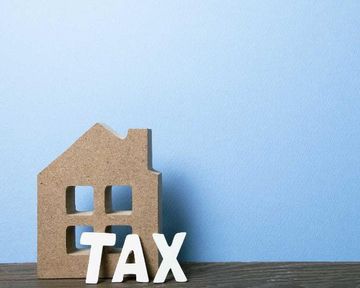Tax tips for homeowners
Individuals who have not yet filed their income tax returns have until 24 October 2022 to do so. When it comes to tax deductions, homeowners are entitled to specific claims if they work from home or own a rental property that provides an income.
“Homeowners who work from home might be entitled to a tax deduction based on the interest charged on the outstanding bond amount. Landlords are also required to declare the total amount of rental income received as part of their taxable income but can lower that taxable income by making certain deductions of non-capital expenses,” explains Regional Director and CEO of RE/MAX of Southern Africa, Adrian Goslett.
It should also be noted that homeowners can only qualify for a home office deduction if they are employed and a condition of the employment is to carry the cost of keeping a home office as the central business location.
Although many homeowners might qualify for a tax deduction, it is sometimes a difficult task to perform the necessary calculations. Goslett recommends that homeowners consult with a professional tax consultant if they are ever in doubt.
But, as a simplified overview of what a homeowner could potentially claim back if they work from home, RE/MAX of Southern Africa provides the following example:
Working on a home purchased for R1 million, if you work from home and use 20% of the property as a home office, you will be entitled to a tax deduction based on the interest charged on the remaining outstanding bond amount. If the interest on the bond is set at 9%, you will be charged roughly R90,000 in interest for the year. Because 20% of the property is used as a home office, you would be entitled to claim 20% of the R90,000 (R18,000) as a tax deduction in the production of your income.
This calculation becomes more complicated if you withdraw an amount from your bond or make a substantial additional payment towards your bond. Essentially, both these actions will affect how much you are able to claim back in tax.
For landlords who are hoping to lower their taxable income, Goslett explains that a landlord is obliged to incur certain expenses during the period that the property is let out. “Deducting these non-capital expenses from your tax return will reduce the taxable income and possibly put you in a lower tax bracket, which will be to your benefit,” he advises.
Examples of non-capital expenses that can be deducted include:
- Rates, taxes, security, and property levies
- Interest paid on the home loan
- Advertising costs of marketing the property
- Rental agent’s commission or fees for securing a tenant
- Insurance (only homeowner’s insurance, not household contents insurance)
- Garden services
- Repairs in respect of the area let
- Note: if the tenant has moved out and repairs are made to the home to sell it, these expenses cannot be deducted as they did not happen while the tenant occupied the property.
“Be warned that evading paying tax on rental income will get you into deep financial water. Rental agents are obligated to provide SARS with a record of the rental income received and paid over to landlords. As a result, it is very easy for SARS to find any discrepancies in the landlord’s tax return. If found guilty of evading tax after notification of an audit, you could be facing a hefty penalty or worse – imprisonment,” Goslett warns.
“As a homeowner, figuring out tax deductibles can sometimes be a rather overwhelming experience. If there is ever any area of doubt, it is best to consult with a professional financial adviser or tax consultant who can provide assistance and guidance through the process,” Goslett concludes.

